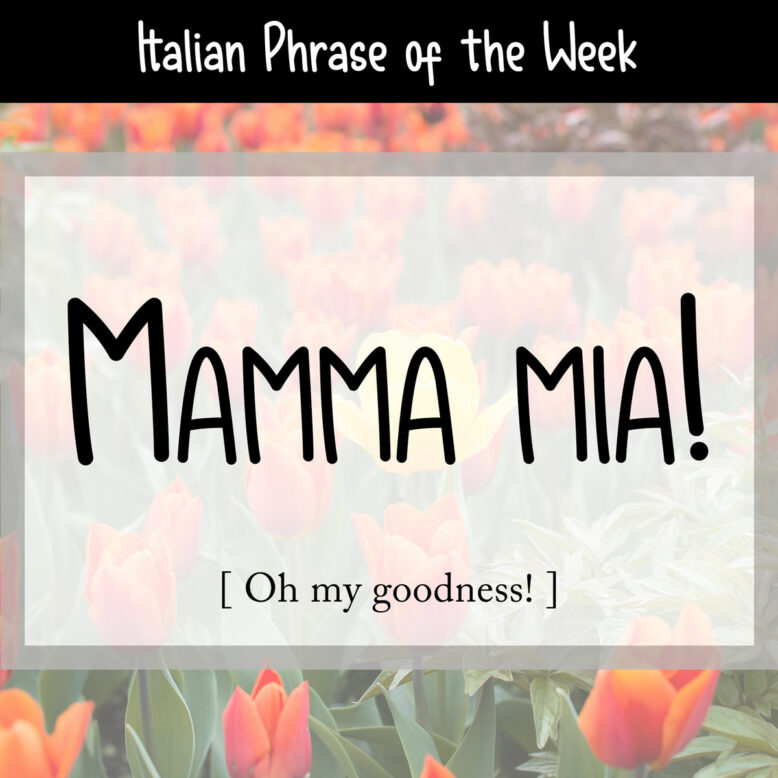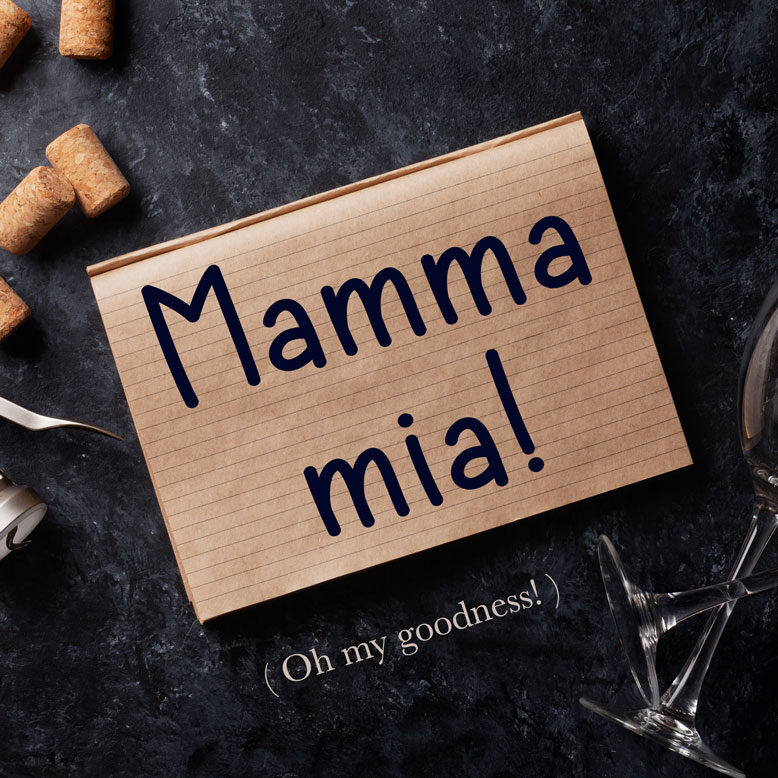The Swedish band Abba may have made the expression popular around the world, but Italians have been using Mamma mia! as a mild expression of surprise, joy, annoyance, disappointment, anger and fear for years. It can translate in numerous ways in English including Oh my goodness! Wow! and Oh man! to name a few.

Mamma mia, che bello!
Oh my goodness, how nice!
Mamma mia, che delusione!
Oh my goodness, what a disappointment!
Also written as one word mammamia, it is the combination of the words mamma (meaning ‘mother‘ or ‘mom‘) and mia (the feminine possessive adjective ‘my‘), so it literally means my mother.
Be careful though, because if you actually want to say “my mom” in Italian, you need to switch the word order around: mia mamma.
Mamma mia, mia mamma è tornata a casa davvero tardi!
My goodness, my mom got home really late!
In certain cases, Mamma mia! can be an intensifier used in order to agree with or stress something. For example:
Guarda che bello che è quel palazzo! – Mamma mia!
Look at how beautiful that palace is! – Tell me about it!
Note that sometimes Mamma mia! is shortened to Mamma! or Oh mamma! (Oh mom!)

If you were hoping for an interesting origin story for Mamma Mia!, we have some bad news – there isn’t one! But we can assume that it stems from the importance of the mother figure in society and religion. After all, our mother is not only our primary source of affection (affetto) but also our safe haven (porto sicuro) in which we take refuge from uncertainty and misfortune.

Heather Broster is a graduate with honours in linguistics from the University of Western Ontario. She is an aspiring polyglot, proficient in English and Italian, as well as Japanese, Welsh, and French to varying degrees of fluency. Originally from Toronto, Heather has resided in various countries, notably Italy for a period of six years. Her primary focus lies in the fields of language acquisition, education, and bilingual instruction.


